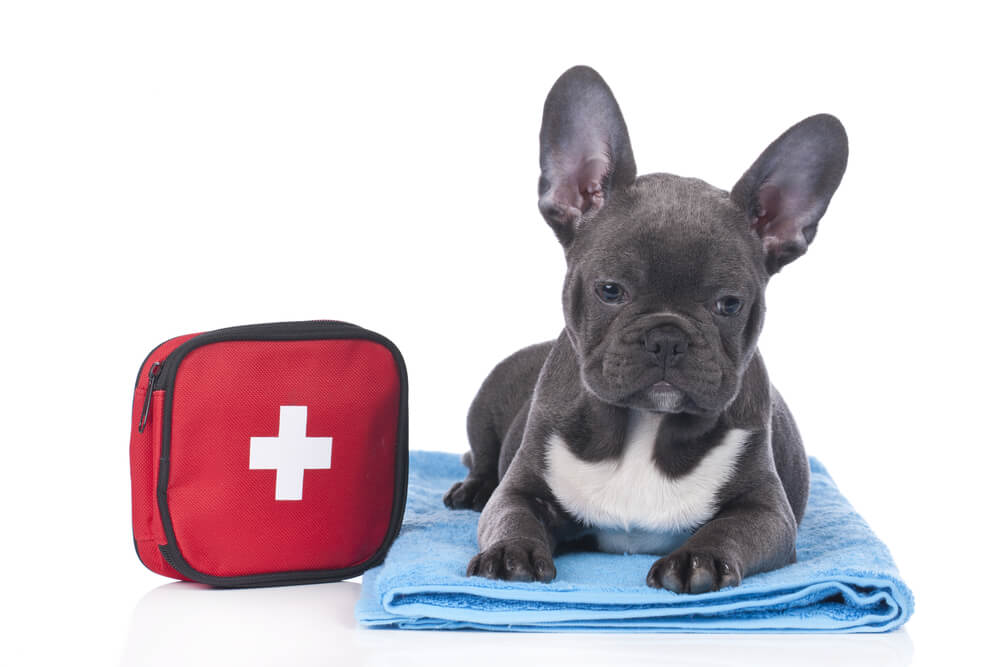Hey Ollie blog readers! We’re offering you an exclusive 60% OFF your starter box! Try now!
You may know how to do the Heimlich, and you’d probably sign up for an infant first aid class if you were going to have a baby. But chances are you’d have no idea what to do if your dog stopped breathing or needed you to treat his bee sting stat.
Yes, CPR and other dog first aid techniques are a real thing, a real important thing. Not only do they exist, but there are experts out there who can teach them to you, like Denise Fleck, a Hollywood-based owner of four dogs and three cats, who teaches a pet first aid and CPCR class (short for cardiopulmonary cerebral resuscitation).
Just like with humans, you’d use CPCR for a dog whenever he is not breathing or doesn’t have a pulse, Fleck says. Slightly different techniques are used depending on the size of the dog, but it involves checking the airway to making sure it’s clear, laying him on his side and manually compressing his chest.
Fleck offers classes in the Los Angeles area and sometimes throughout the country—check out her fall tour of the Southern US to see if she’s coming to a city near you. You can also find other CPR and first aid classes by searching Pettech.net. In the meantime, Fleck shared a few of her helpful in-case-of-emergency pointers with us:
If your dog is bleeding
Apply pressure to the area and elevate it above the heart, then add pressure to a pressure point (i.e., a major artery, the base of the tail) to diminish the blood flow to the limb and minimalize the blood loss.
If your dog is choking
Give them a big bear-like hug. Put your fist in the soft part of their belly behind their last rib, lean your chest or stomach into them and pull them against you.
If your dog gets stung by a bee
Give them one milligram of Benadryl per pound that your pet weighs and apply a cold pack to decrease the swelling. If they are having breathing difficulty, get them to the vet immediately.
First aid essentials to keep at home
A thermometer (a human one is fine for under the tail, but you’ll need a dog thermometer for their ears—it should be 101 F), hydrogen peroxide (to induce vomiting in case of poisoning), a tick remover and a muzzle (in case your pet is hurt because they could bite due to extreme pain).
Call your vet or an animal hospital in an emergency. It is best to be trained in these techniques before attempting them.
The Ollie blog is devoted to helping pet parents lead healthier lives with their pups. If you want to learn more about our fresh, human-grade food, check out MyOllie.com.
Tagged As:

The nutrition your dog needs,
the food they want.

Enjoying our articles? Subscribe our Newsletters and get new articles directly to your inbox
You might also like
18 August 2025
9 MINS READ
Nourish Skin from Within: Fresh Dog Diet Benefits
If your dog is constantly scratching, licking their paws, or has a dull, flaky coat, it’s not just frustrating—it could be a sign that something’s off in their diet. Skin and coat issues are som…
by Ollie Pets
12 August 2025
5 MINS READ
Top 8 Allergens Hiding in Your Dog’s Bowl
As pup parents, we never want to see our dogs uncomfortable. When it comes to itching, swelling, and upset stomachs, the culprit may be in their bowl. Understanding the most common allergens and t…
by Ollie Pets
11 August 2025
5 MINS READ
Not all Processing Is Equal: What’s Really in Your Pet’s Bowl?
As pet parents, we know how important it is that our dogs live long, healthy, and happy lives. This is why at Ollie, we focus so much on what goes into their bowls. But did you know there may be s…







